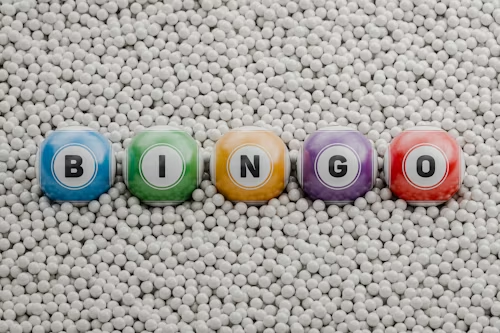Word puzzles like 7 Little Words have captivated audiences with their mix of simplicity and intellectual challenge. The term “drudgery” often implies tedious and monotonous tasks, but in the context of this game, it becomes an engaging challenge. “Drudgery 7 Little Words” is not just about solving a single word—it’s a journey of discovery that turns problem-solving into an exciting adventure. PS2 BIOS
By focusing on small, manageable puzzles, Drudgery 7 Little Words transforms drudgery into an exercise of the mind. Let’s explore how this popular game makes even the dullest concepts feel thrilling, and how embracing challenges like “drudgery” can enrich your cognitive skills.
Why People Love Drudgery 7 Little Words
Drudgery 7 Little Words is more than a puzzle game; it’s an experience that taps into our innate love of learning and problem-solving. Here’s why people are drawn to it:
- Quick Engagement: Each puzzle is bite-sized, allowing players to dive in during breaks or leisure time.
- Mental Stimulation: The game challenges vocabulary and problem-solving skills without overwhelming players.
- Sense of Accomplishment: Solving a word like “drudgery” brings a small but satisfying win, fostering positivity.
The combination of mental exercise and the joy of discovery keeps players coming back for more.
What Makes “Drudgery” Such a Fun Challenge?
In 7 Little Words, clues like “drudgery” often represent complex ideas that require lateral thinking. Here’s what makes tackling this word unique:
- It’s Unexpected: “Drudgery” isn’t a word we encounter daily, making it intriguing.
- Context is Key: The game forces players to think creatively about how letters fit together.
- Problem-Solving Satisfaction: The sense of achievement when finding the correct answer is unparalleled.
This blend of challenge and reward transforms what might seem mundane into something enjoyable.
How 7 Little Words Turns Drudgery into Joy
- Gamification: By turning words like “drudgery” into puzzles, the game transforms tedious concepts into fun tasks.
- Incremental Learning: Each solved puzzle builds vocabulary and enhances cognitive abilities, turning players into lifelong learners.
- Community Connection: Players often share tips and tricks, creating a sense of belonging and collaboration.
Even the word “drudgery” itself feels lighter when viewed through the lens of a game.
The Cognitive Benefits of Playing Word Games
Playing Drudgery 7 Little Words isn’t just fun—it’s also great for your brain. Here’s how solving puzzles like “drudgery” helps:
- Improved Memory: The game sharpens recall by challenging players to remember word patterns and definitions.
- Enhanced Problem-Solving Skills: Players develop strategies to piece together clues, improving critical thinking.
- Stress Reduction: Engaging in light mental activity can reduce stress and improve overall well-being.
Puzzles like “drudgery” train your brain to find joy in the act of learning.
Tips for Tackling Tough Words Like “Drudgery”
If you’re stuck on “drudgery” in 7 Little Words, try these strategies:
- Break It Down: Look at prefixes and suffixes to identify smaller components of the word.
- Think Synonyms: Consider related terms that match the clue’s meaning.
- Use a Fresh Perspective: Step away from the puzzle and return later with a clear mind.
These methods ensure that even tricky puzzles become manageable.
The Broader Lesson: Finding Joy in Everyday Challenges
The appeal of solving “drudgery” in a game lies in reframing the concept. What if we approached real-life drudgery with the same mindset? Here are some takeaways:
- Turn Tasks into Games: Create small rewards for completing routine chores.
- Celebrate Progress: Acknowledge even minor achievements to stay motivated.
- Seek the Positive: Focus on the benefits of completing a task, like the sense of accomplishment or the time it frees up.
Much like in 7 Little Words, finding joy in small victories can transform our daily lives.
FAQs About Drudgery in 7 Little Words
Q: What does “drudgery” mean in the context of the game?
A: In 7 Little Words, “drudgery” represents a word challenge that requires players to think creatively and connect clues to the correct answer.
Q: How does solving puzzles like “drudgery” benefit me?
A: Solving word puzzles improves vocabulary, cognitive skills, and problem-solving abilities while providing a sense of accomplishment.
Q: Are there other challenging words like “drudgery” in the game?
A: Absolutely! Words like “tedium,” “monotony,” and “grind” often appear as part of the game’s thematic puzzles.
Q: Can I use hints in 7 Little Words?
A: Yes, the game provides hints to help players who are stuck. Use them wisely to maintain the challenge.
Q: Where can I find more puzzles like 7 Little Words?
A: Similar games include Wordscapes, Crossword Jam, and Scrabble Go, which also challenge your vocabulary and problem-solving skills.
Conclusion: Embracing the Joy of Drudgery
“Drudgery” might seem like an unusual focus for a game, but Drudgery 7 Little Words shows us that even the most mundane concepts can be transformed into opportunities for growth and joy. By challenging ourselves with puzzles, we learn to embrace the small victories that make life exciting.
So the next time you encounter “drudgery,” whether in a puzzle or in real life, approach it with curiosity and optimism—you’ll be surprised by what you can achieve.




